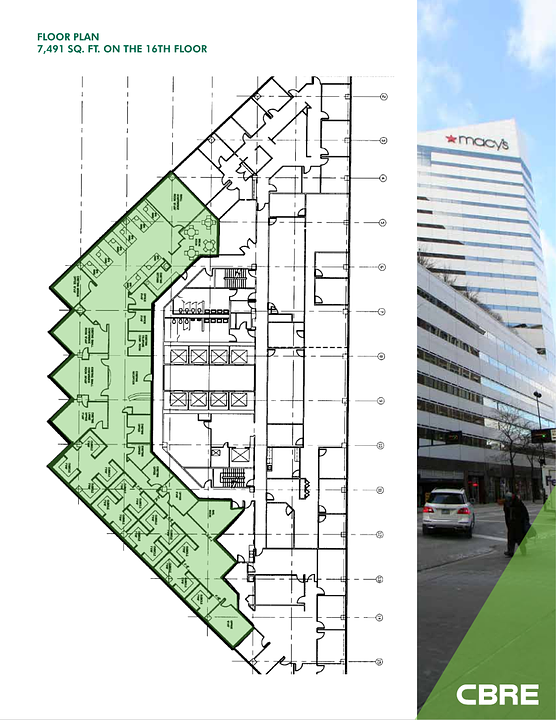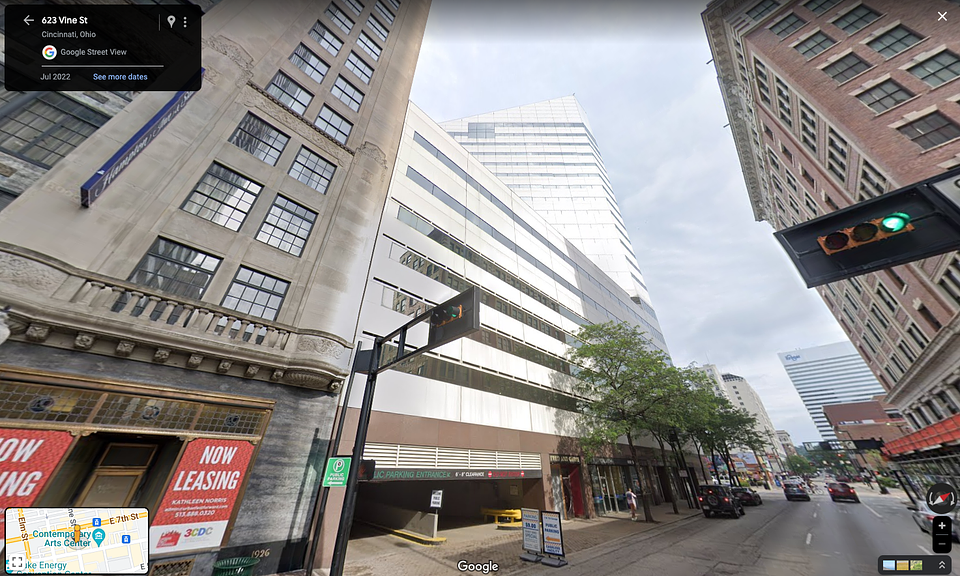Here's a current postwar apartment conversion in DT Cincinnati. This is the former HQ of Federated Department Stores, which owned Macy's. At some point they rebranded Federated as Macy's. Around 2018 Macy's (the former Federated) decamped and moved to NYC, leaving this oddly-shaped office building from around 1980.
No telling how they're going to carve the trapezoid up into apartment units:

The odd trapezoid shape, from outer space:

The lower "floors" appear to be office but they are actually parking. NYC is unique in having very little parking in postwar office buildings, whereas it's standard issue in the Midwest, and so a big selling point for apartment conversions.




